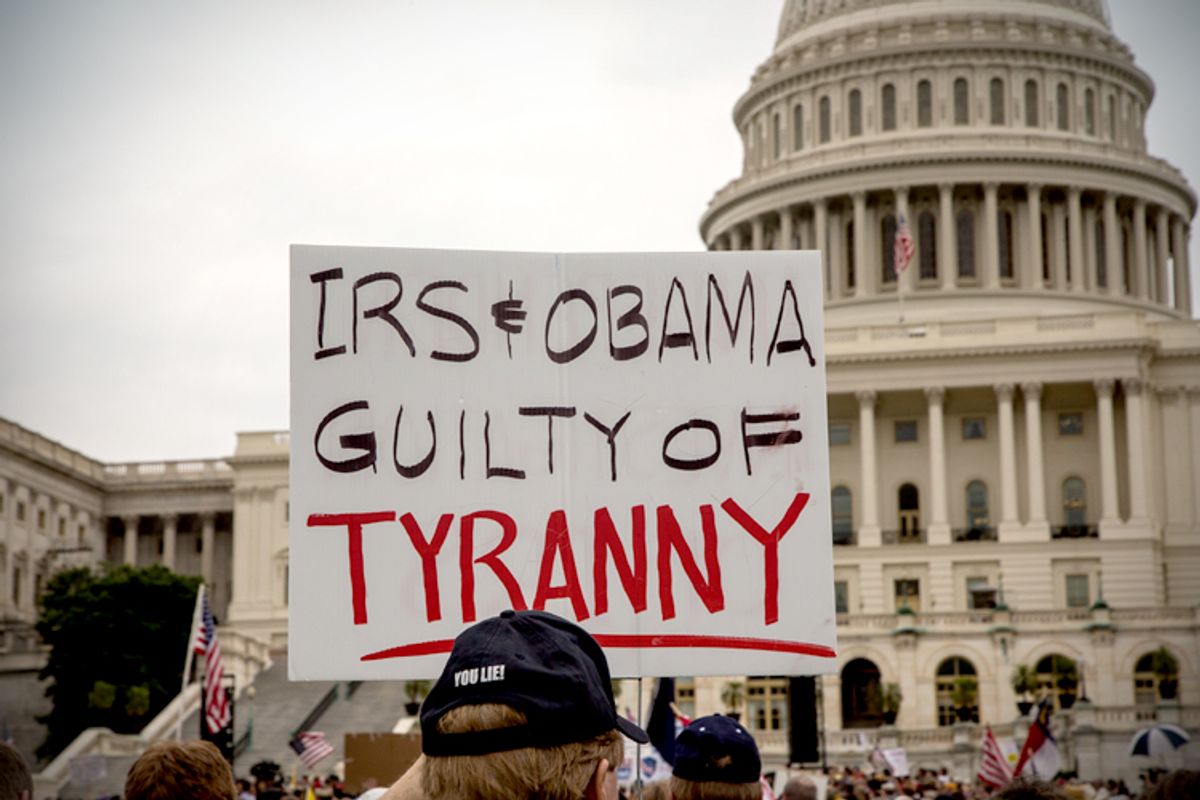It feels a bit like beating a dead (or zombified) horse at this point, but the latest from Jonathan Weisman at the New York Times strikes another blow at whatever life was left in the IRS scandal over alleged targeting of Tea Party groups.
Today, Weisman reports that plenty of groups that had nothing to do with left-right politics, like a Palestinian-rights organization and open source technology groups, made it onto target lists and received "a series of questions and requests almost identical to the ones it was sending to Tea Party groups at the time:"
[A] closer look at the I.R.S. operation suggests that the problem was less about ideology and more about how a process instructing reviewers to “be on the lookout” for selected terms was applied to any group that mentioned certain words in its application.
Organizations approached by The New York Times based on specific “lookout list” warnings, like advocates for people in “occupied territories” and “open source software developers,” told similar stories of long waits, intrusive inquiries and bureaucratic hassles that pointed to no particular bias but rather to a process that became too rigid and too broad. The lists often did point to legitimate issues: partisan political campaign organizations seeking tax-exempt status, or commercial businesses hoping to cloak themselves as nonprofit groups. But even I.R.S. officials say lookout list warnings were often pursued in a ham-handed or overly rigid way.
The scandal was based on the notion that the IRS singled out the not-for-profit applications from Tea Party groups for extra scrutiny by putting them on "BOLO lists" -- lists of applications to "be on the lookout for" -- but now we've learned that the agency also targeted: Groups that used "progressive" or "Occupy" in their names, pro-medical marijuana groups, "Occupied Territory advocacy" organizations, pro-Obamacare orgs, "newspaper entities," open source software advocates, and others that organized around reducing the national debt. In other words, a wide range of groups spanning the ideological divide and many existing outside of it.
Weisman's reporting offers accounts from some of those groups targeted, including a tiny Minnesota-based Palestinian-rights group, whose experience with IRS officials sounds nearly identical to what targeted Tea Party groups experienced.
No one is defending the use of BOLO lists -- as Weisman writes, "even I.R.S. officials say lookout list warnings were often pursued in a ham-handed or overly rigid way" -- but the problem is that the IRS has no better way to differentiate between bona fide social welfare organizations that deserve tax exemption, and political groups hoping to exploit the tax-free status, so they used a kludgy workaround.



Shares